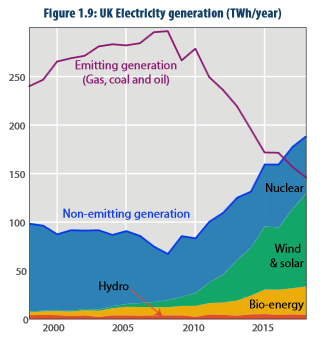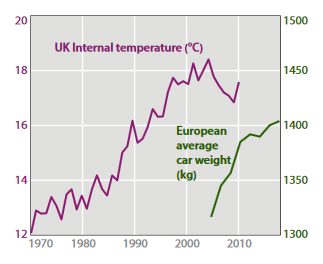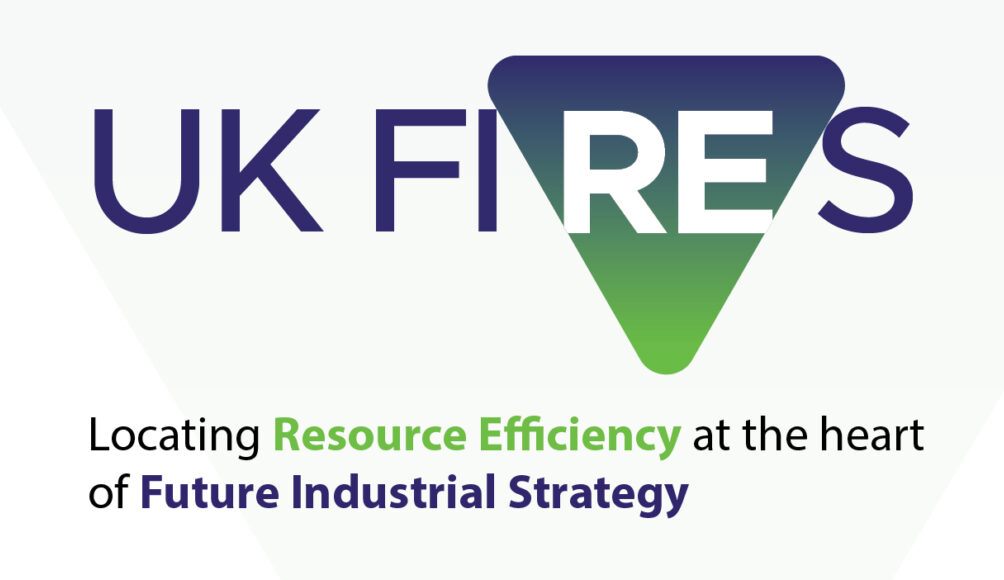
Absolute Zero Report
The Absolute Zero Report was published in November 2019 by UK FIRES, a group of academics from six major UK universities funded by the Engineering and Physical Sciences Research Council ("EPSRC").
It is firmly rooted in science but is also governed by a practical approach to incremental change and the need of all of us to address the need to approach the challenge of achieving Absolute Zero together as a society, based on technologies that are available now.
Key quotes from the report:
- Apart from flying and shipping, all of our current uses of energy could be electrified.
- We are legally committed to reducing the UK’s emissions to zero by 2050, but there isn’t time to do this by deploying technologies that don’t yet operate at scale.
- Policy discussions have prioritised breakthrough technologies in the energy system, particularly carbon capture and storage, but it is at such an early stage of development that it won’t reduce emissions significantly by 2050.
- The problem with breakthrough technologies is not our shortage of ideas, but the very long time required to take a laboratory-scale idea through the technical and commercial development cycle before it can begin to capture a substantial share of the world market.
- The evidence suggests that modern bio-fuels are incompatible with any wider sustainability of life on earth.
- With incremental changes to our habits and technologies, there are multiple options for living just as well as we do today, with 60% of the energy. With electric heat pumps and better insulation we can stay just as warm. With smaller electric cars we can keep moving, and by using materials better, we can make buildings and goods compatible with our zero emissions law.
- The effective price of carbon must be prohibitively large by 2050. A key issue for how to implement this is the timeline for how the price must grow (or restrictions must become more strict) from now to 2050.

We recommend that you read the full 31 page Absolute Zero Report.
For those who are short on time, we include the excellent Executive Summary from the full Absolute Zero Report:
Executive Summary
We can’t wait for breakthrough technologies to deliver net-zero emissions by 2050. Instead, we can plan to respond to climate change using today’s technologies with incremental change. This will reveal many opportunities for growth but requires a public discussion about future lifestyles.
We have to cut our greenhouse gas emissions to zero by 2050: that’s what climate scientists tell us, it’s what social protesters are asking for and it’s now the law in the UK. But we aren’t on track. For twenty years we’ve been trying to solve the problem with new or breakthrough technologies that supply energy and allow industry to keep growing, so we don’t have to change our lifestyles. But although some exciting new technology options are being developed, it will take a long time to deploy them, and they won’t be operating at scale within thirty years.
Meanwhile, our cars are getting heavier, we’re flying more each year and we heat our homes to higher temperatures. We all know that this makes no sense, but it’s difficult to start discussing how we really want to address climate change while we keep hoping that new technologies will take the problem away.
In response, this report starts from today’s technologies: if we really want to reach zero emissions in thirty years time, what does that involve? Most of what we most enjoy – spending time together as families or communities, leisure, sport, creativity – can continue and grow unhindered. We need to switch to using electricity as our only form of energy and if we continue today’s impressive rates of growth in non-emitting generation, we’ll only have to cut our use of energy to 60% of today’s levels. We can achieve this with incremental changes to the way we use energy: we can drive smaller cars and take the train when possible, use efficient electric heat-pumps to keep warm and buy buildings, vehicles and equipment that are better designed and last much longer.
The two big challenges we face with an all electric future are flying and shipping. Although there are lots of new ideas about electric planes, they won’t be operating at commercial scales within 30 years, so zero emissions means that for some period, we’ll all stop using aeroplanes. Shipping is more challenging: although there are a few military ships run by nuclear reactors, we currently don’t have any large electric merchant ships, but we depend strongly on shipping for imported food and goods.
In addition, obeying the law of our Climate Change Act requires that we stop doing anything that causes emissions regardless of its energy source. This requires that we stop eating beef and lamb – ruminants who release methane as they digest grass – and already many people have started to switch to more vegetarian diets. However, the most difficult problem is cement: making cement releases emissions regardless of how it’s powered, there are currently no alternative options available at scale, and we don’t know how to install new renewables or make new energy efficient buildings without it.
We need to discuss these challenges as a society. Making progress on climate change requires that the three key groups of players – government, businesses and individuals – work together, rather than waiting for the other two to act first. But until we face up to the fact that breakthrough technologies won’t arrive fast enough, we can’t even begin having the right discussion.
Committing to zero emissions creates tremendous opportunities: there will be huge growth in the use and conversion of electricity for travel, warmth and in industry; growth in new zero emissions diets; growth in materials production, manufacturing and construction compatible with zero emissions; growth in leisure and domestic travel; growth in businesses that help us to use energy efficiently and to conserve the value in materials.
Bringing about this change, and exploring the opportunities it creates requires three things to happen together: as individuals we need to be part of the process, exploring the changes in lifestyle we prefer in order to make zero emission a reality. Protest is no longer enough – we must together discuss the way we want the solution to develop; the government needs to treat this as a delivery challenge – just like we did with the London Olympics, ontime and on-budget; the emitting businesses that must close cannot be allowed to delay action, but meanwhile the authors of this report are funded by the government to work across industry to support the transition to growth compatible with zero emissions.
Breakthrough technologies will be important in the future but we cannot depend on them to reach our zero emissions target in 2050. Instead this report sets an agenda for a long-overdue public conversation across the whole of UK society about how we really want to achieve Absolute Zero within thirty years.

